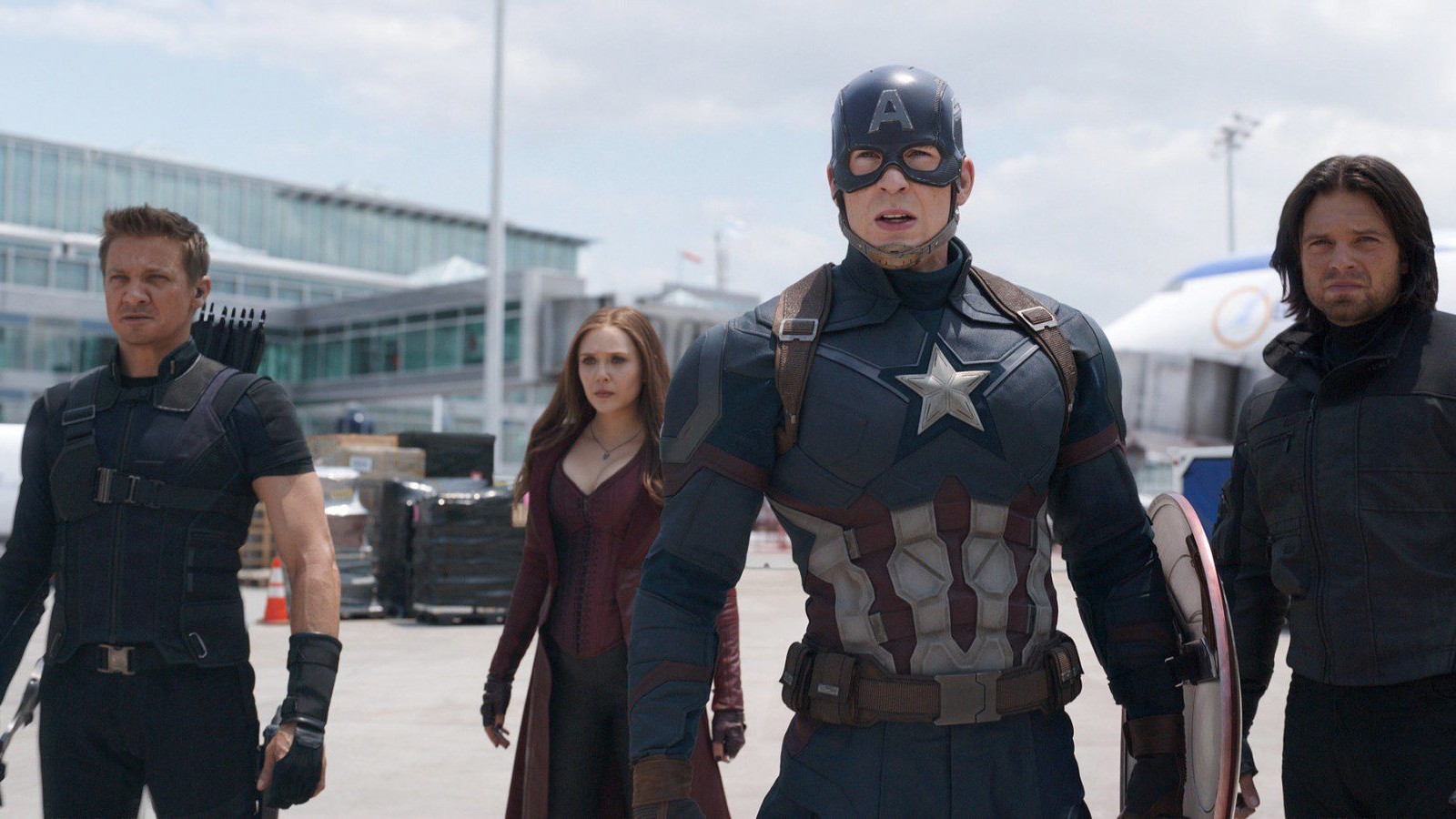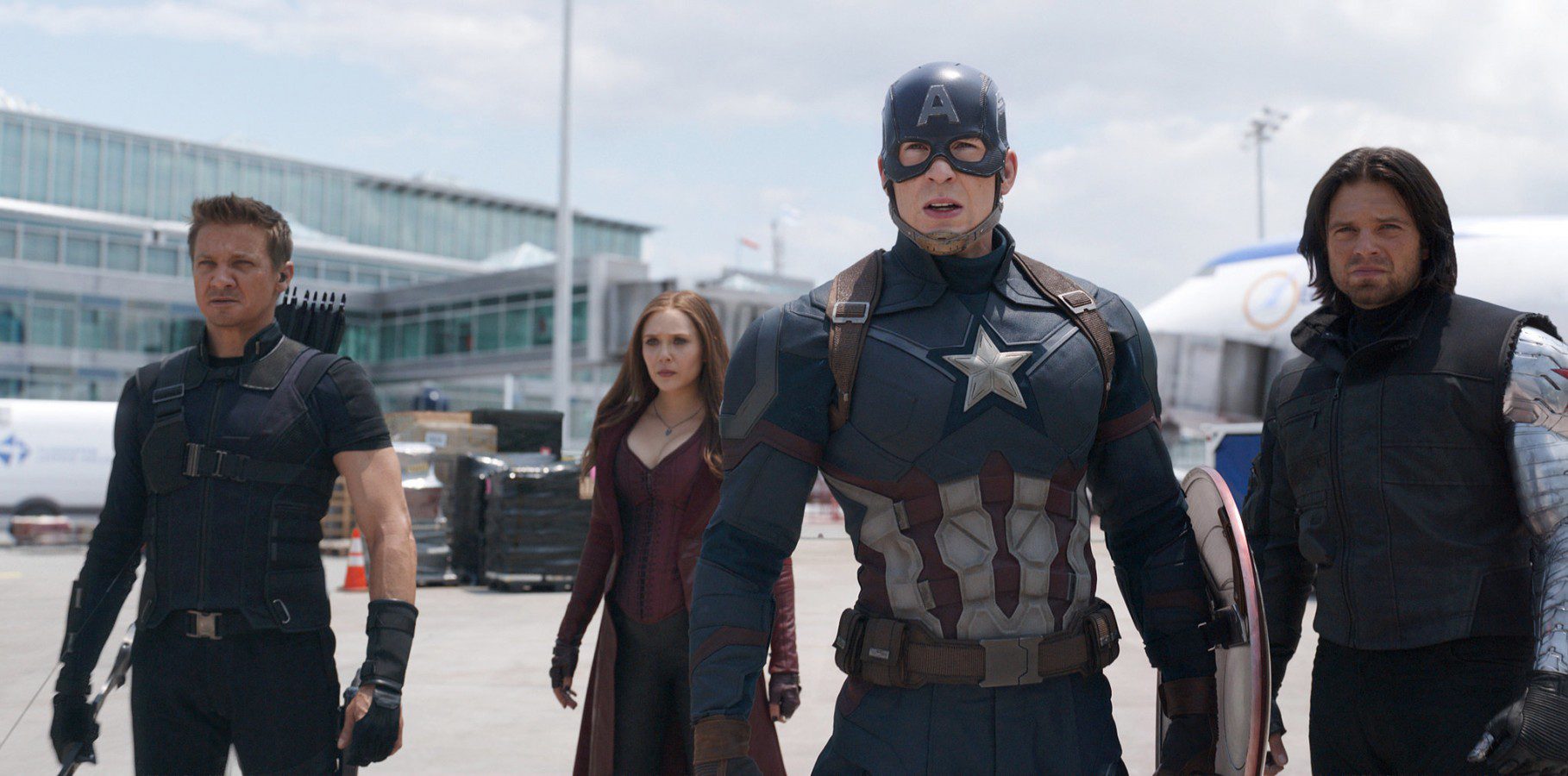A little over a year ago, the earth quaked when storied director Paul Thomas Anderson defended superhero movies. “And what’s wrong with superhero movies, you know? I don’t know. You’re talking to someone that enjoys watching those films,” Anderson said in an interview. “People need to get a life if they’re having that discussion. Those movies get a bad rap.” For a director like Anderson, both a towering cult figure in American independent cinema and a widely-celebrated, Oscar-nominated auteur, to say something like this seems like blasphemy to legions of cinephiles who stick up their noses at the blockbuster genre. Whichever way the film blows, the costumed crusaders are here to stay in our multiplexes for a very long while, so audiences better suit up and get used to it.
Captain America: Civil War is the latest juggernaut in the legion of superhero movies and it’s a doozy. It’s a superhero movie that proves exactly how much a superhero film can actually accomplish with the right team behind the camera. It’s a great freighter ship, yet it moves with the nimble agility of a jackrabbit. It’s popcorn-stuffing action, yet it’s a relevant fable on American politics and our politician’s refusal to compromise for the greater good. It’s inconsequential, only a chapter in something much larger and grander, but it’s a spectacle to behold, a tentpole worth rooting for.
The third installment in the Captain America series – or the 13th movie in the Marvel Cinematic Universe (MCU, as the kids call it) – leads right where last year’s Avengers: Age of Ultron left off. After the successful, but destructive missions in Sokovia (Age of Ultron) and Lagos (the opening scene in Civil War), the United Nations has decided to put a new set of laws called the Sokovia Accords to keep the Avengers in check under global government eye. The agreement creates a rift in the team with Captain America aka Steve Rogers (Chris Evans) not trusting the government’s judgement over his own and Iron Man aka Tony Stark (Robert Downey, Jr.) in support of the oversight as he feels a sense of responsibility for the mess in Sokovia and wants to prevent from happening again. After a bombing at the UN, the group becomes further divided as their motivations to find who carried it out become disparate. Eventually, the Avengers find themselves fighting each other rather than those they should band together to stop.
The superhero v. superhero dilemma may be trendy right now with the disappointing mouthful Batman v. Superman: Dawn of Justice only a wee couple months ago, but Civil War benefits from its audiences great knowledge and understanding of these characters from a baker’s dozen of films before. The feeling of watching Civil War is similar to the ecstasy of two recent blockbusters. One is, of course, the original Avengers film in 2012, a how-is-this-going-to-work stunt of blockbuster filmmaking that gave each of its characters their own spotlight while relishing in well-choreographed superhero team-up action. The second is a bit unorthodox. Harry Potter and the Deathly Hallows, Pt. 2. Why? Because like that final film in the wizarding saga, Civil War is a film with an ensemble of characters that audiences have come to know rather well over an entire franchise – their powers, their quirks, their ticks, etc. And seeing them in genuine conflict, making genuinely difficult and, a major key here, interesting decisions proves to be an emotional effective practice, even for a superhero movie.
Top that off with some of the best action to ever be shot in recent movie history as well. Remarkably, the directorial team of Anthony and Joe Russo find a way to visually keep the audience in the battle with a keen sense of geography and character communication. The script is quick on its feet as well, as Marvel is beginning to leave much of the corny, fan-service humor behind that littered a lot of its earlier installments. Or maybe that’s still there and that “fan service” isn’t as annoying anymore because, at this point, we are all slowly becoming fans. Like Paul Thomas Anderson said: “What’s wrong with superhero movies?” If Civil War is the dawn of what else Marvel is bringing, things should only get better, not only for superhero movies. Captain America is on his way to saving the American blockbuster.
Captain America: Civil War is rated PG-13. Now playing in theaters everywhere.
Jasper Bernbaum
Jasper is a contributing writer for Cinemacy. He combines his love of music with his visual eye into a passion for live photography. He holds a BFA in Film Production from Chapman University and is an avid filmmaker, watcher, and all around cultural adventurer.


